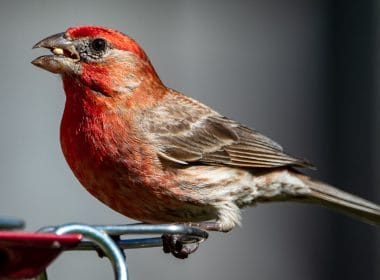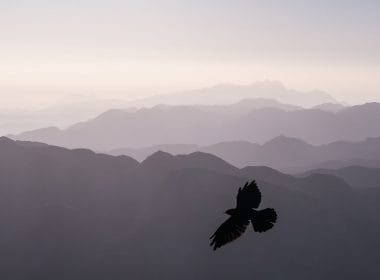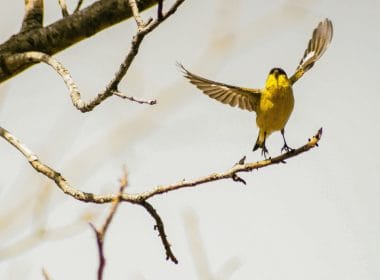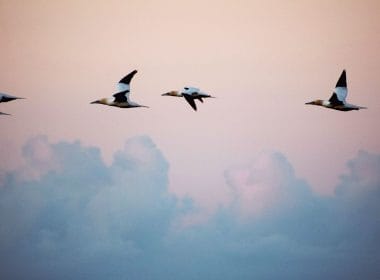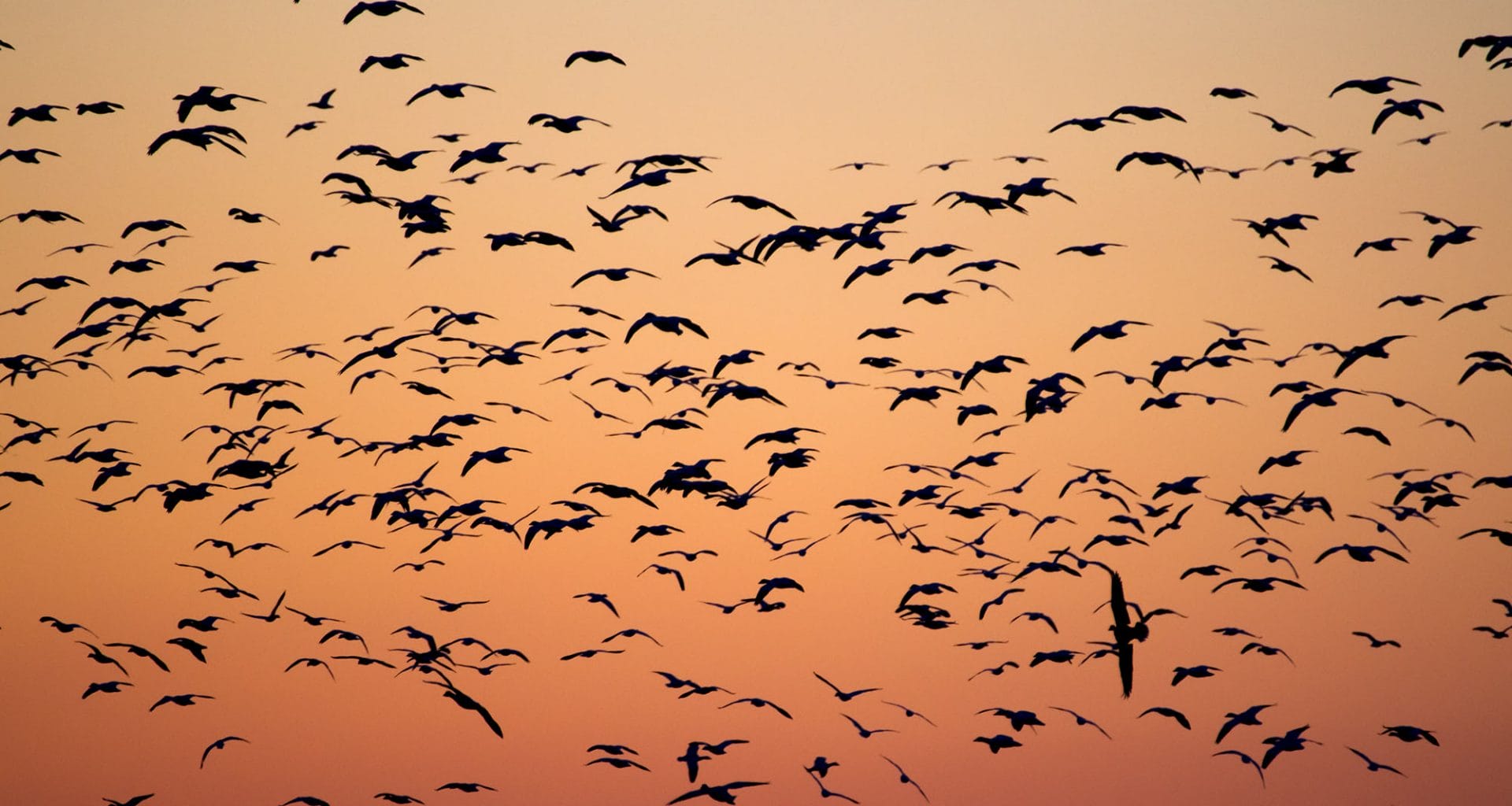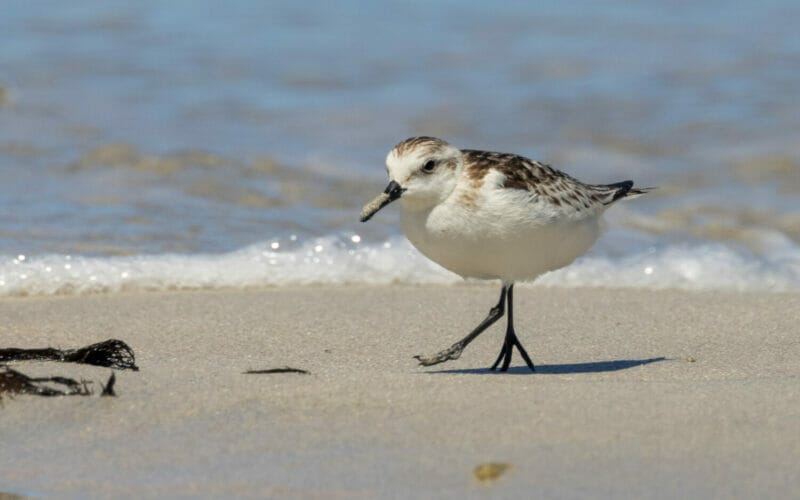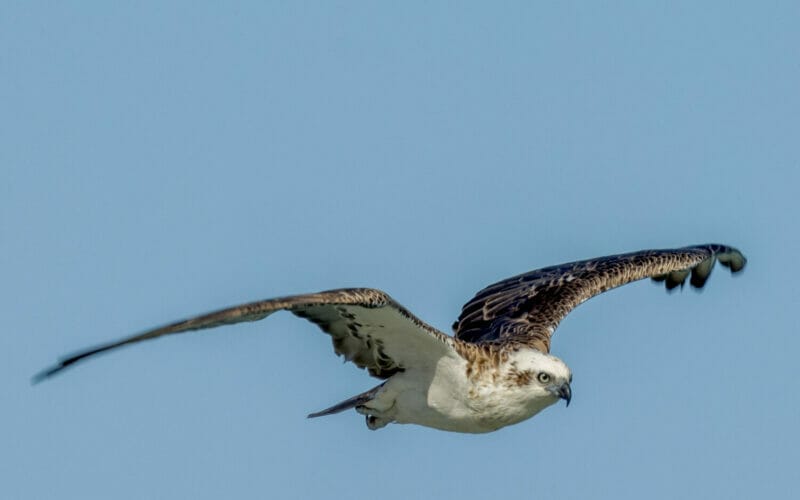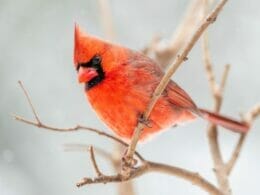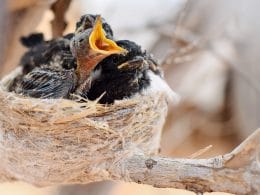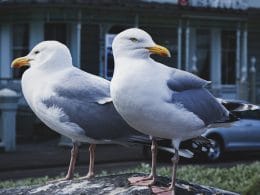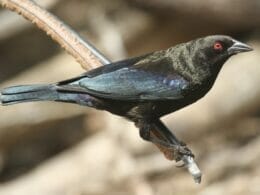Migration is a beautiful art of nature. There are many dangers the birds will have to face along the way, not to mention the long and arduous journey. Many people focus on the migrating birds and their journey and forget about the remaining birds. While migration is a magnificent feat, the birds that adapt to survive winter are the lesser-known heroes. So, do birds hibernate or migrate?
It is a common misconception that all birds escape the wintery months by migrating. While many species do migrate to warmer climates, some species wait out the winter cold. But how do non-migratory species survive the cold? Unlike other species, they do not hibernate. Well, not in the ‘traditional’ sense anyway.
Some species benefit from remaining in the same area. These birds will have particular adaptations to get them through the icy winter. Let’s see what helps some species to enjoy full-time residency in the coldest areas.
Let’s pay homage by looking at the resilient species that remain in the same area year-round and see why they choose to stay.
Why Do Some Species Not Migrate?
Migration may be magnificent to the human eye, but it is a long and perilous feat for the migrating birds. Birds that stay in the same area benefit by not falling to the hazards offered by migration.
Moving between areas open the birds up to a host of dangers, including exposure to predators, storms, and hunting. But we know that the birds that do not migrate do so by nature, not necessarily by choice. Here’s why their instincts could tell birds to stay in the same place and why do birds hibernate or migrate.
It Saves Energy
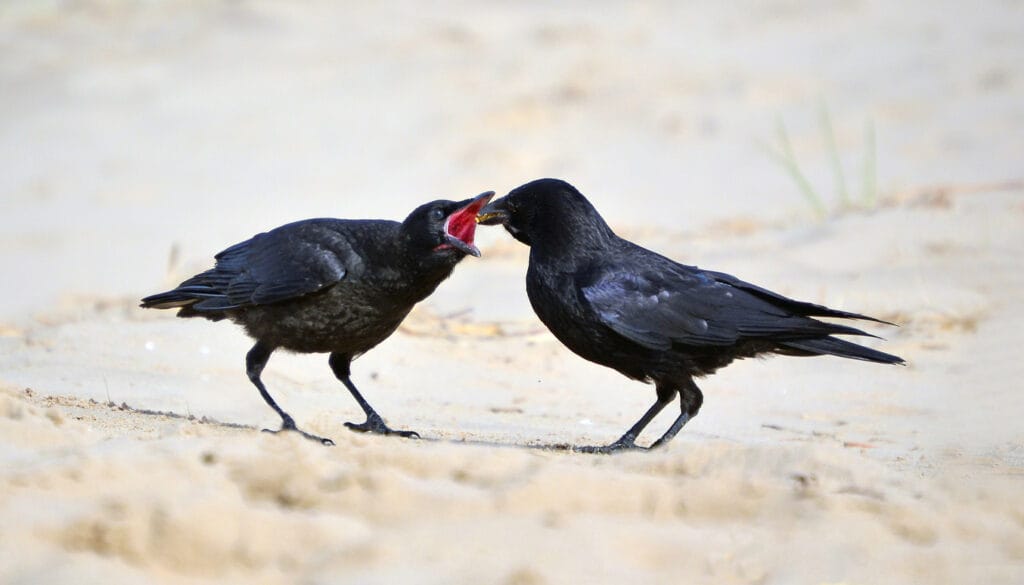
Migration takes plenty of energy. Birds that migrate travel thousands of miles to reach a more temperate climate and this takes a great deal of energy. Instead of expending their energy on migration, birds that remain in one region direct energy to other areas. Energy is a big factor in why do birds hibernate or migrate.
Author Note: By hunkering down for the winter, a bird will use that energy to forage for food, protect their habitat, keep their territory established, and even raise their young.
If a bird leaves the established territory, it will risk losing it. To defend their territory, a bird will sometimes remain in the same area instead of migrating. These habitats are often defended because they are superior habitats and are worth holding onto.
When birds return in the Spring season, it is usually a scramble for the best territories. Therefore, birds may not migrate so that they do not lose their hold over an ideal habitat.
Important for Nurturing Young
If a particular bird species does not migrate, they can allocate that time rearing their young. The young chicks will also not need to migrate, allowing them to forgo the dangers of the journey. Nurturing young can be a big factor in why do birds hibernate or migrate.
But we already know that remaining in the same place, or migration for that matter, is not a thought-out choice. Both migration, as well as staying in the area, is instinctual. Everything in nature has its place, and if a species does not migrate, the bird will adapt to survive the arduous winter. Some bird species will not migrate simply because the winters are more temperate.
But there are areas with thick snowfall and plummeting temperatures where the birds will also remain. Unlike other animals in these cold areas, the birds will not necessarily hibernate. Instead, they develop a variety of survival mechanisms to survive the cold. One of which is similar to migration. This is called Torpor.
What is Torpor?
An animal enters a Torpor state when the body temperature drops, and heart rates, respiration, and metabolic rates all lower drastically. This means that the animal will require just a few calories to keep them alive.
Essential life functions such as blood circulation and respiration can continue, but the bird will not need as much food. Considering food sources in heavy snow can drop dramatically, this is essential for survival.
Did You Know? A bird’s metabolic rate can decrease by as much as 95%. This is also referred to as short term hibernation.
If food is scarce, even in warmer weather, birds could enter torpor states to ensure survival.
Are There Any Dangers of Torpor?
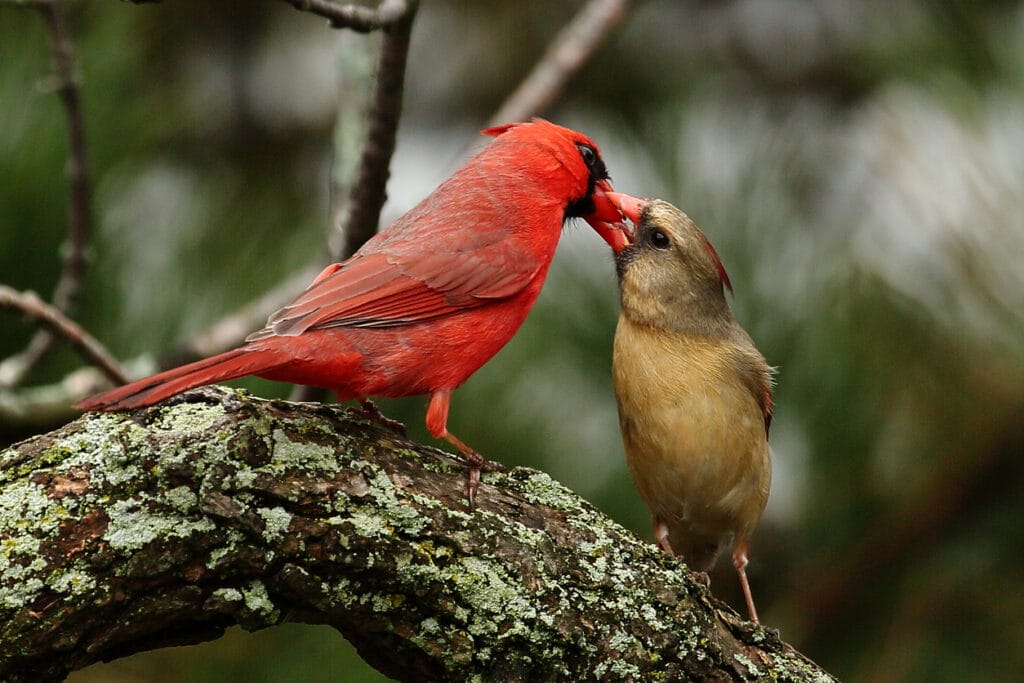
Torpor is the closest a bird can come to hibernation. While a torpor state can save a bird’s life when food sources are low, it can be a dangerous state to be in. During torpor, a bird’s metabolic functions are dramatically affected.
Author Note: As well as having slowed metabolic processes, a bird’s reaction and reflexes are slowed. These abilities are all essential for a bird’s protection. So, it is only natural that a torpor state can leave a bird extremely vulnerable.
This vulnerability is especially prevalent at night when the predators such as owls hunt for easy prey. When a bird is in a torpor state, it will not have a quick reaction to danger and, as such, will become an easy target.
You wouldn’t be wrong if you mistook a bird in a torpor state for a sleeping beauty.
Topor During the Winter
But although the bird is not technically sleeping, it is in a sleepy state and will usually shiver themselves out of their stupor. Birds will typically go into a torpor state during the long, cold winter night.
A bird will use the sun to defrost itself. It will typically spend a few minutes in the warm morning sun to help wake up. The danger comes in here because the bird will need a food source as soon as possible. If no food source is readily available, it could take too long for the bird’s protective reactions to return.
Birds do not often go into a torpid state and will only do it when it is essential. It is uncommon to see a wild bird in a state of torpor, but if you do, don’t mistake it for hibernation.
Torpor vs. Hibernation
Hibernation is when an animal will go into a prolonged state of a low metabolic rate. This is longer lasting than a state of torpor and could last a few weeks.
Torpor vs. Sleeping
Even though a torpid bird will look as if it is sleeping, it is not technically sleeping. In a sleeping state, the metabolic functions also slow down. But the metabolic processes are still more heightened than when in torpor. torpor is only used in extreme situations, not even by all species, while sleep will happen daily.
Another function that slows metabolic rate is sunning. Sunning can only be done when the sun is out, and in some winter climates, this may be tricky. Birds that are sunning themselves will appear sleepy, lazy, and lethargic.
A bird that is sunning itself will look similar to a bird in a torpid state. However, the physical attributes are different. The bird’s body temperature remains unchanged. The metabolic functions and respiration will also remain unchanged.
Unlike the torpid state, the bird will return to normal fairly easily and rapidly. The sun helps the bird to stay warm without using its energy reserves. It is interesting to note that a bird will use the sunning technique to wake itself out of the torpor state.
Torpor vs. Illness
Author Note: It is easy to confuse an injured bird with a bird in torpor. But be careful before you approach the bird as it could be in torpor and not necessarily injured. Although the bird may appear immobile or unresponsive, it is in a perfectly healthy state.
The bird is simply conserving its energy so that it does not get ill. The bird can redirect the energy towards finding food, staying alert when it is essential, and taking care of itself.
What Birds Typically Go into a Torpid State?
The following birds will avoid migration and may use torpor to defend themselves against the cold.
- Poorwills
- Hummingbirds
- Swifts
- Doves
- Frogmouths
- Roadrunners
- Chickadees
Birds are not the only animals that will make use of torpor. Other animals such as rodents, marsupials, mice, hedgehogs, and bats will use torpor.
The only bird that can stay in torpor for up to a few weeks is the Common Poorwill.
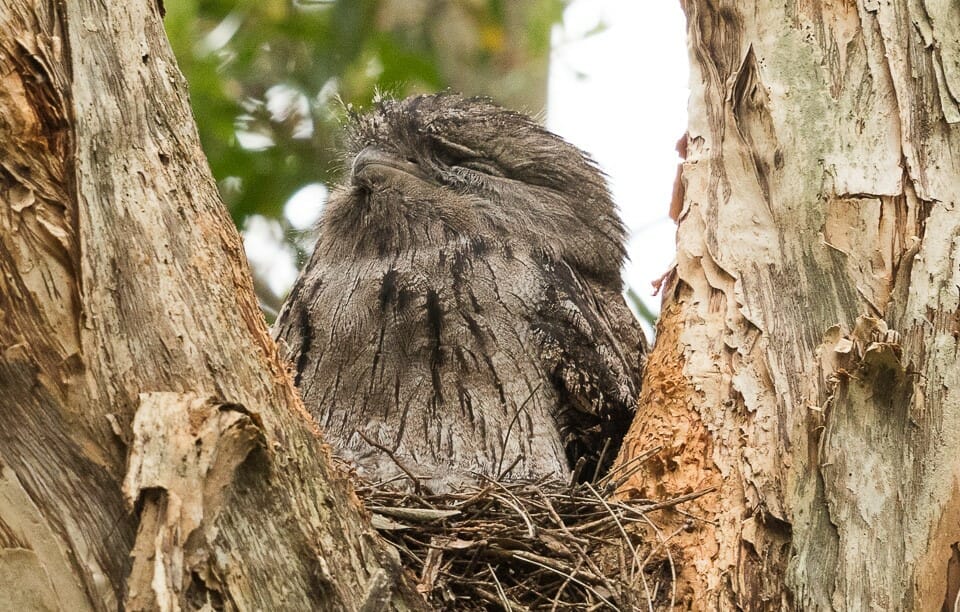
Do All Birds Migrate?
No, not every species will migrate. As we have explained, birds will instinctually migrate to a more temperate climate, and others will instinctually remain where they are.
Did You Know? 75% of birds in North America will migrate to a warmer climate in the winter months. This means that 25% of birds will remain in the region to embrace the winter months.
Which Birds Migrate?
Larger birds and raptors will typically migrate and are known as diurnal birds. Typically, you can see these birds migrating in flocks. Here are some common birds that migrate.
Conclusion
If you want to help a bird in the wintertime, you could ensure a fresh source of food is readily available. This could help the birds get a source of energy as soon as they come out of the torpor. We hope you enjoyed this article on do birds hibernate or migrate.
Fly high friends!
FAQ
I think this is one of the most incredible feats of nature. Birds use the position of the stars, the earth’s magnetic field and visual clues to help them navigate through their migration.
It is not that unusual for young birds to be left behind when the main body of their species migrate. It could be that they are not strong enough to make the strenuous flight. In that case, they just ‘over-winter’ wait for their feathered friends to return.
Another incredible feat of endurance is that many birds fly hundreds of miles on migration without stopping. Needles to say, they are usually very hungry when they arrive at their wintering grounds.
